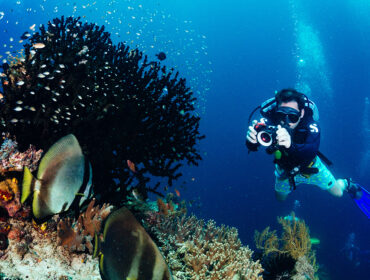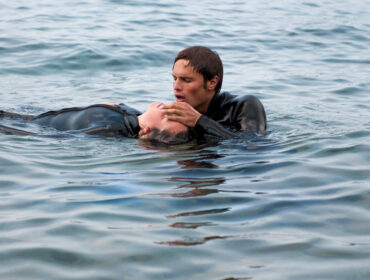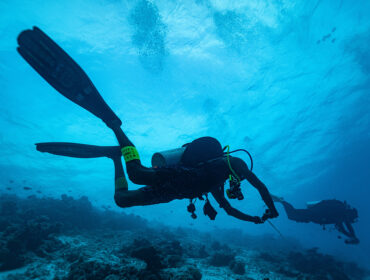Don’t you just hate it when your all geared up and ready for the days dive, sitting in the dive boat when suddenly you feel that queasiness… mistaking it at first to be butterflies in your stomach, the excitement and anticipation of the dive when suddenly you realize, your getting seasick.
The worse part of seasickness is that sometimes, to much embarrassment, it seems to have affected only you, when all the others in the same dive boat are fine.
What is Seasickness?
Seasickness or Mal de Mer , is a form of motion sickness characterized by a feeling of nausea and in some cases, vertigo, experienced after spending time on a boat. Seasickness can affect anyone; even the most seasoned sailor or diver can be suddenly plagued by its symptoms.
The ailment is a form of vertigo. All vertigos result from a disturbance of equilibrium in the ear. The problem is attributed to disturbance in the balance system of the inner ear (vestibular) system. Your sensory perception gets out of sync as these nerve fibers attempt to compensate for the unfamiliar motion of the ship moving through water.
Symptoms
Some of the symptoms of seasickness are:
- Drowsiness
- Nausea
- Dizziness
- Headaches
- Cold Perspiration
Prevention & Remedies
While in the dive boat, try to sit amidships (in the middle of the boat) on the water, always look at the horizon, lean back against a firm surface and avoid neck movement. The idea is to prevent excessive movement or rocking and allow your senses to provide stabilization inputs by glancing at the horizon.
Don’t sit near the exhaust or engines of the boat, as the diesel fumes may aggravate your condition. Sit facing the wind where you get plenty of fresh air. Most people recommend not reading while in the dive boat, and prevent using binoculars for extended periods.
Try to suit up as quickly as possible and be the first in the water. The effects of motion gradually tend to wear off as time passes on the boat.
Always get a full nights rest before a dive, and if you’re hung-over, you will almost certainly be motion sick. Many divers suggest having a light breakfast before a dive, and even claim that nibbling on biscuits on the dive boat may help prevent seasickness.
If the above preventive measures don’t help, you can always take a seasickness pill as soon as the symptoms occur. If you are diving however I would suggest taking a pill the day before the dive just so that you would know if there are any side effects beforehand, rather than finding out once your 30 feet underwater!
Acupressure wristbands that claim to prevent seasickness are often used, even though it is said to be more of a placebo affect rather than the actual science. Seasickness patches and other seasickness products are also available nowadays that you can stick onto your skin before boarding the boat, and can be obtained with a prescription from your doctor.
All of us at some point or another have experienced the effects of motion sickness. It is nothing to be embarrassed about, and its effects wear off as soon as the unfamiliar motion ceases. You will be right as rain as soon as you jump into that cool water so don’t let this malady ruin your diving.




